The Bay Area fell in love with Bill Irwin more than 30 years ago when he clowned around with the Pickle Family Circus.
 One of our most inspired physical comedians — his best work can stand alongside Chaplin and Keaton — Irwin is doing what clowns do when they get older: He’s getting serious.
One of our most inspired physical comedians — his best work can stand alongside Chaplin and Keaton — Irwin is doing what clowns do when they get older: He’s getting serious.
In recent years, we’ve seen Irwin at his clowning best in Fool Moon at American Conservatory Theater, and also in his more serious mode in Samuel Beckett’s Texts for Nothing, also at ACT.
Earlier this week, Irwin returned to his old stomping grounds in the horrific clown show known as Edward Albee’s Who’s Afraid of Virginia Woolf?, which begins previews April 11 and opens April 13 at San Francisco’s Golden Gate Theatre. This is the same stage where Irwin goofed around (brilliantly) in Largely New York in 1977.
This is sort of a victory lap for Irwin, who snagged a Tony Award for his portrayal of George, the dour, bespectacled academic whose wife, Martha — played on this tour as on Broadway and in London’s West End by the formidable Kathleen Turner — is as bad at holding her liquor as he is.
Of the original 1963 production, critic Walter Kerr had this to say: “It’s a horror show with laughs.”
Irwin has his own quick description: “A love story with acid of various kinds.”
Speaking on the phone from Chicago, the tour’s pre-San Francisco stop, Irwin says he has seen the play shift from an “incendiary, somewhat shameful thing” in the early ’60s to classic status today.
“Edward wrote this play in his early 30s, yet he knew how to write a love story and about marriage,” Irwin says. “Even in his wild youth he knew it. One of the best compliments we got early on — we were out of town in Boston before the Broadway run — and somebody told me after the show that Kathleen and I seemed married the moment we walked onstage.”
Irwin’s transition from clown to serious, Tony-winning actor began with Beckett, which then led to a Broadway stint in Albee’s The Goat (or Who Is Sylvia?) alongside Sally Field.
Now that he’s played two Albee husbands — one drunk and ferocious, the other having an affair with a goat — Irwin says he sees some similarities.
“There’s some unnameable quality in Edward’s dialogue. It’s sharp, and there’s always a cause and effect. There’s just this underlying `Edwardness,’ which is to say, a fascination with language, puns both good and bad and easy learnedness.”
The most famous version of Virginia Woolf is the movie starring Richard Burton and Elizabeth Taylor. Irwin saw it when he was 17, and unlike Albee and Turner, he’s a fan of the movie.
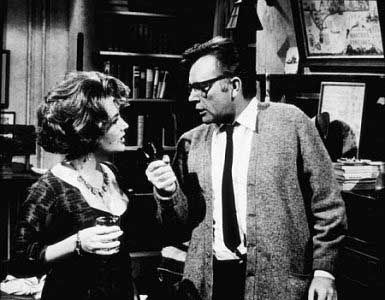
“It’s a very funny play, and the movie is generally considered to be unfunny, but I find it much funnier than I remembered,” Irwin says.
In the rehearsal hall, when Irwin was desperate for any crumb of information that might help him put a distinctive stamp on the character of George, Irwin recalls hearing Albee discuss his fantasy casting for the movie.
“Edward said he had been hoping for a different cast,” Irwin recalls. “He wanted Bette Davis and James Mason. That gave me a clue. Burton was a big, barrel-chested, powerful man. My take on George is different. From the moment I heard Edward say the name, my George has had a little James Mason going.”
Albee has done some judicious cutting to the play — though it still runs nearly three hours — and added back in all the swear words that were excised in the ’60s.
“There’s more ambiguity to the play,” Irwin says. “It’s less clear to the audience and to the characters what’s going on and whether people are fabricating or talking about something that actually happened.”
Being a physical comedian, Irwin — who turns 57 April 11 — is used to arduous shows, but Virginia Woolf is a challenge.
“My friend Nancy Harrington, who helped us create Fool Moon, said that Fool Moon was a whole lot easier than what I’m doing now. In a certain sense it’s true and not true. We just had some time off from the tour, and I went home. I was in my bed in my house, and I didn’t sleep well. I felt I should be doing the play every night. I had anxiety dreams. I can tell you, I’m going to miss this play. It will be a weight off my bones when we’re done, but this play is in my bones — for better and for worse.”
Initially, Irwin was nervous about his chemistry with Turner — would there be any? At an early reading, with director Anthony Page in a sweltering dance studio, things didn’t go so well. “I had trepidation going in, and even more going out,” Irwin says of the experience. “But the play, man, it holds even when you’re bashing through it under terrible circumstances. A few days later, we sat down and readit for Edward and some producers. We had a different pair of actors playing the younger couple, and the whole thing lit up. We know something nice was happening when one of the producers, who said she could only stay for the first act, stayed for the whole thing.”
Since, then, Irwin says, there has been very little “grad school” analysis of the play in favor of focusing on the emotions and — this might surprise some — the humor.
“I hope it doesn’t feel like we’re doing a classic play respectfully,” Irwin says.
As for Irwin’s future beyond Woolf, he is, as he puts it goodhumoredly, “contractually forced” to create a new show for the Philadelphia Theatre Company. The working title is The Happiness Lecture. There’s also a “small film” director Jonathan Demme wants him to do this fall.
“Life has intriguing possibilities,” Irwin says. “Despite aging and going deper into middle age, life is exciting. Now, if we could just extract our nation from its terrible foreign policy.”
Ah, Bill Irwin, ever the clown.
Who’s Afraid of Virginia Woolf? continues through May 12 at the Golden Gate Theatre, 1 Taylor St., San Francisco. Tickets are $50-$80. Call (415) 512-7770 or visit www.shn-sf.com for information.
Note: New Conservatory Theatre Center hosts “A Conversation with Bill Irwin” at 7 p.m. April 23 at 25 Van Ness Ave., San Francisco. Tickets are $20-$50. Call (415) 861-8972 or visit www.nctcsf.org.

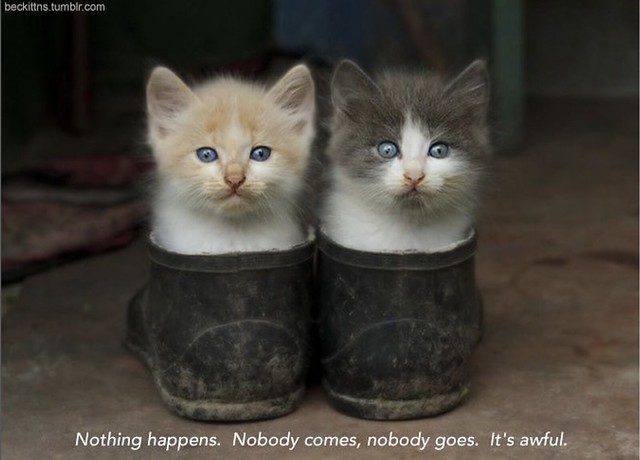

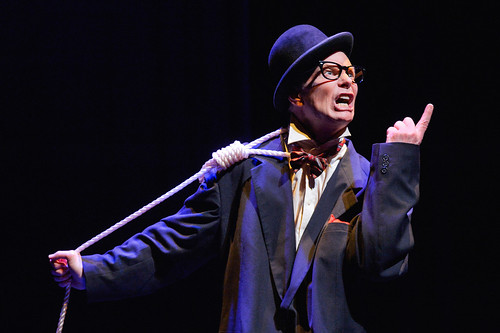
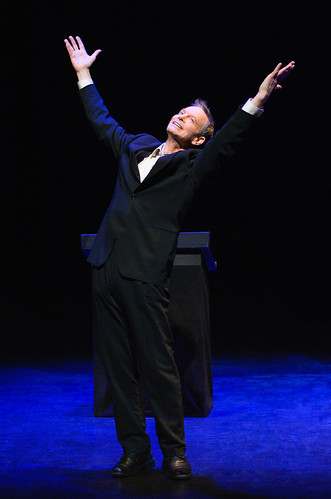
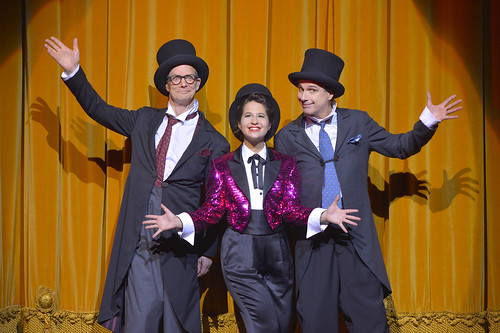
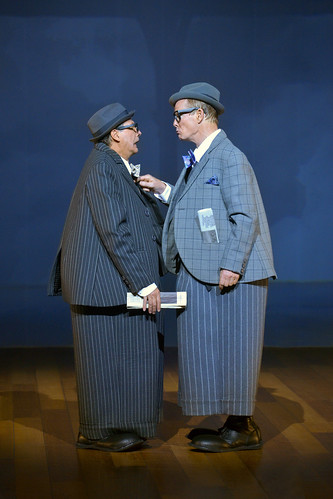
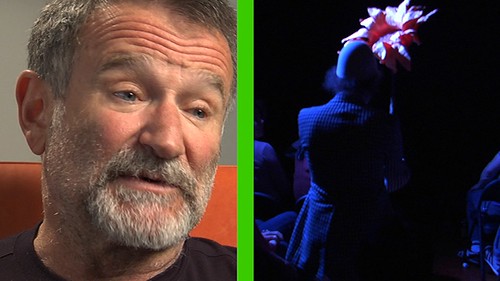
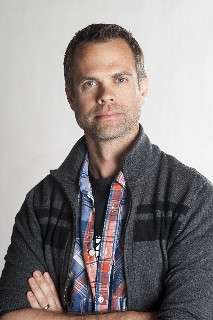

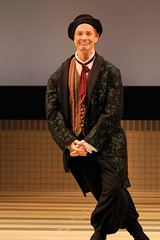
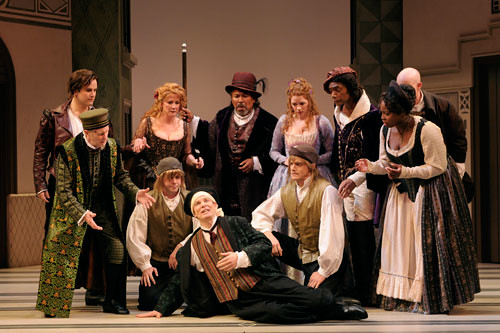

 Now that I’ve whined about the pioneer of modern circus, let me share what interests me about Kooza. Two words: David Shiner.
Now that I’ve whined about the pioneer of modern circus, let me share what interests me about Kooza. Two words: David Shiner.


 One of our most inspired physical comedians — his best work can stand alongside Chaplin and Keaton — Irwin is doing what clowns do when they get older: He’s getting serious.
One of our most inspired physical comedians — his best work can stand alongside Chaplin and Keaton — Irwin is doing what clowns do when they get older: He’s getting serious.